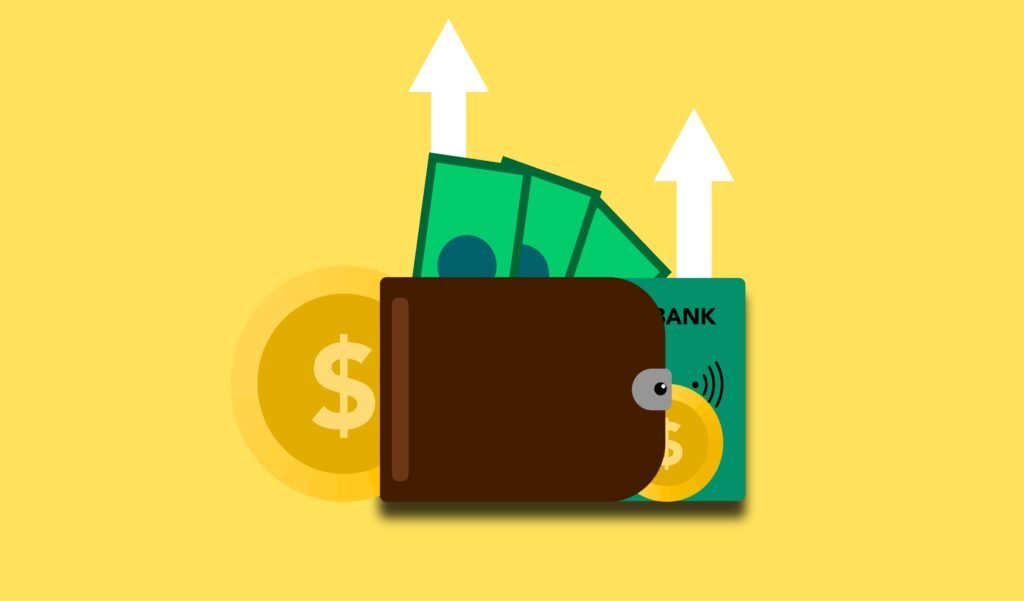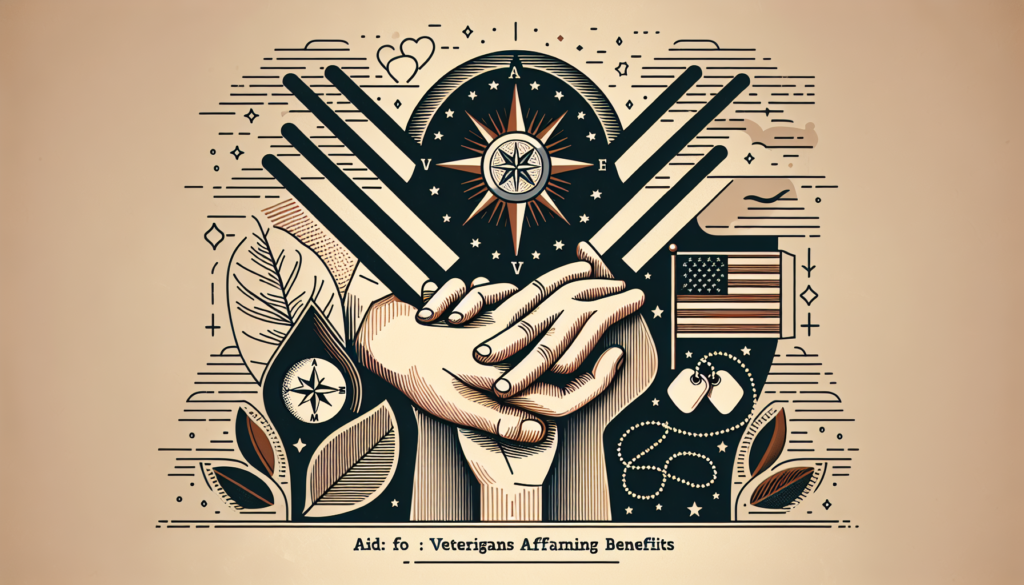Embarking on the journey through the complexities of VA benefits for spouses, you’ll find a beacon of support in our dedicated platform designed to light your way. No corner of this crucial landscape is left unexplored, as you are offered a wealth of resources to comprehend healthcare intricacies, untangle financial aid options, and embrace educational paths. Your bravery in partnership is recognized here—we strive to ensure that you, too, are equipped with knowledge and opportunities to flourish alongside your veteran. Join a supportive community eager to share in your triumphs and offer a helping hand through the hurdles, as you attain the empowerment and recognition you so rightly deserve.

This image is property of images.pexels.com.
Understanding Eligibility for VA Spouse Benefits
Criteria for Spouse Benefit Eligibility
You play a vital role in the life of your veteran spouse, and understanding your eligibility for benefits is crucial. As the spouse of a veteran, you may be eligible for various benefits through the Department of Veterans Affairs (VA). Eligibility is generally based on the veteran’s service, whether they are alive or deceased, and your marital status and dependency. Certain benefits may require the veteran to have service-connected disabilities or for you to meet specific income thresholds.
Marriage and Dependency Documentation
To make the most of your benefits, it’s important to be prepared with official documentation. Your marriage certificate is essential in establishing your connection to your veteran spouse. If you have children, their dependency status may impact eligibility, requiring birth certificates or legal adoption papers. It’s a good idea to have these documents organized and accessible.
Service-Connected Disability Conditions for Eligibility
If your spouse has a service-connected disability, you could qualify for additional benefits. It’s important to understand the specific conditions that apply, such as the percentage of your spouse’s disability rating or if their disability has been classified as permanent and total. Certain benefits may also be accessible if your veteran spouse died during service or as a result of a service-connected disability.
Healthcare Benefits for Spouses
CHAMPVA Program
One of Medicare’s valuable programs is the Civilian Health and Medical Program of the Department of Veterans Affairs (CHAMPVA). If you don’t qualify for TRICARE and your veteran spouse is rated permanently and totally disabled, died from a service-connected disability, or died on active duty, you might be able to receive health care through CHAMPVA.
Civilian Health and Medical Program (CHAMPVA) vs TRICARE
It’s helpful to know the difference between CHAMPVA and TRICARE. TRICARE is for active duty and retired service members and their families, while CHAMPVA is mainly for families of veterans who have service-connected conditions resulting in permanent and total disability or death. Both offer comprehensive health care programs, but your eligibility will depend on your veteran spouse’s specific circumstances.
Applying for Spousal Healthcare Benefits
To apply for healthcare benefits like CHAMPVA, you’ll need to complete specific forms and documentation. The application process may involve providing your marriage certificate, documentation of your spouse’s military service, and any additional evidence of dependency. Being thorough in your application can ensure a smoother process and a quicker resolution to receive benefits.
Educational Benefits for Spouses
The Post-9/11 GI Bill Transfer Process
The Post-9/11 GI Bill has provisions that allow service members to transfer unused educational benefits to their spouses. This is a significant opportunity for you to pursue higher education or training. However, it’s essential to understand the conditions and timeframes for transfers, as they must be done while the veteran is still in service.
Fry Scholarship for Surviving Spouses
If your spouse died in the line of duty after September 10, 2001, the Fry Scholarship is available to you. This scholarship can cover your tuition and fees for education and training. You should also be aware of how receiving the Fry Scholarship may affect your eligibility for other educational benefits.
VA’s Survivors’ and Dependents’ Educational Assistance (DEA) Program
The DEA program provides education and training opportunities to eligible dependents of veterans who are permanently and totally disabled due to a service-related condition or who died while on active duty or as a result of a service-related condition. It’s a valuable benefit that can help you further your education or career.
Survivor Benefits
Dependency and Indemnity Compensation (DIC)
If your veteran spouse passed away due to a service-connected injury or disease, you might be eligible for DIC, a monthly benefit paid by the VA. Understanding the application process and the evidence required to prove service connection is key to accessing these funds.
Death Pension Benefits
For spouses of deceased wartime veterans, the VA’s death pension can offer financial support. Your eligibility is based on your income, and the veteran’s service must have occurred during a defined period of war. Filing a well-prepared claim will help you navigate the complexities of the system.
Burial Benefits and Memorial Items
As a part of honoring your late veteran spouse’s service, the VA provides burial benefits and memorial items. These can include a headstone or marker, a burial flag, and a Presidential Memorial Certificate. The process for arranging these honors should be initiated promptly following the veteran’s death to ensure all services are granted.

This image is property of images.pexels.com.
Home Loan Guaranty and Housing Benefits
VA Home Loan Eligibility for Spouses
You may qualify for the VA Home Loan benefit if your veteran spouse died on active duty or from a service-connected disability. This benefit helps you purchase, build, or adapt a home. It’s essential to procure a Certificate of Eligibility and understand the program’s unique features, such as no requirement for a down payment or private mortgage insurance.
Adapted Housing Grants for Spouses of Disabled Veterans
If you’re caring for a spouse with a severe service-connected disability, you may be entitled to an Adapted Housing Grant. These grants can be used to construct or modify a home to meet the needs of your disabled spouse, enhancing their quality of life.
Surviving Spouse’s Rights to VA Loan Entitlement
As a surviving spouse, your rights to VA loan entitlement are preserved in many cases. Familiarize yourself with the continued entitlement and explore possibilities for refinancing or buying another home using the VA loan benefit, as long as you haven’t remarried.
Financial Support Programs
Veterans Pension for Surviving Spouses
A Veterans Pension may offer you steady income if your veteran spouse’s service occurred during wartime, they are no longer living, and your income is below a certain threshold. Understanding how to calculate your countable income and how it affects your pension can be an intricate process but can provide crucial financial support.
Special Monthly Compensation Benefits
If your veteran spouse is or was severely disabled, you might be eligible for Special Monthly Compensation (SMC). This benefit is paid in addition to regular VA Disability Compensation and is designed to help offset the costs of additional care your spouse may need.
Aid and Attendance or Housebound Assistance
Should your veteran spouse be significantly disabled and require the aid and attendance of another person, or if they are housebound, additional benefits may be available. Gathering the appropriate medical evidence and understanding how to apply can ensure you receive these supplementary funds.

This image is property of images.pexels.com.
Counseling and Mental Health Services
Family and Marriage Counseling
The VA offers counseling services to help you navigate the complex emotional landscape that can come with military life and caring for a veteran. These services include professional counseling for family and marriage issues, which can be crucial in maintaining healthy relationships and personal well-being.
Support for PTSD and Secondary Trauma
Living with someone who has PTSD can also affect you. The VA provides tools and support for spouses who experience secondary trauma. Recognizing the signs and seeking help early can make a significant difference in both your life and the life of your veteran spouse.
Bereavement Counseling Services
Losing your veteran spouse is an incredibly difficult experience. Bereavement counseling services are available through the VA to assist you during this time. These services offer a compassionate space to process your grief and help you cope with loss.
Employment and Career Support
Spouse Employment Programs and Initiatives
Numerous employment initiatives are in place to support military spouses in finding rewarding work. Exploring these programs can connect you with job opportunities, and you may benefit from certain preferences in federal hiring.
Job Training and Placement Services
Beyond job search support, you can access job training and placement services tailored specifically for military spouses. These can open new career paths and offer the training and credentials necessary to thrive in the civilian workforce.
Education and Career Counseling (Chapter 36)
The VA’s Chapter 36 program provides personalized counseling and support for career decisions, like choosing education paths or understanding how to use your VA benefits for educational and career advancement.

Insurance Benefits for Spouses
Family Servicemembers’ Group Life Insurance (FSGLI)
As a key part of your family’s financial plan, you should consider life insurance options like FSGLI, which offers coverage for spouses and dependent children of service members insured under SGLI. Understanding your coverage amount, costs, and the process for maintaining or changing your coverage can be an asset for your financial security.
Supplemental Insurance Options
You may also have access to supplemental insurance options to provide additional coverage and peace of mind. It’s wise to evaluate your family’s needs and consider the various products available through the VA and other sources.
Continuing Insurance After the Veteran’s Death
If you outlive your veteran spouse, you may be able to convert FSGLI coverage into a private life insurance policy. Familiarizing yourself with the conversion process before it becomes necessary can help you avoid gaps in coverage.
Preparing for the Future: Benefit Changes and Updates
Staying Informed on Legislation Affecting Benefits
Staying informed about legislation and policy changes affecting VA benefits is key to protecting your interests and planning for the future. This can include changes to benefit amounts, eligibility criteria, or the introduction of new services.
Consulting with VA Benefits Advisors
You don’t have to navigate the VA system alone. VA benefits advisors are available to help you understand your options and make informed decisions. Taking advantage of this expertise can result in better outcomes for accessing and maximizing your veteran spouse’s benefits.
Anticipating Changes due to Veteran Status Adjustments
Finally, be proactive and look ahead to potential adjustments in benefits due to changes in your veteran spouse’s status, such as improvements or declines in their health or changes in income. By anticipating these changes, you can adjust plans accordingly and continue to provide for your family’s needs.
Remember, you are not alone in this. The support you provide to your veteran spouse is invaluable, and understanding these benefits can equip you to not only survive but also thrive in your journey alongside them. With the right knowledge and resources, navigating VA benefits for spouses can be a smoother and more empowering process.

